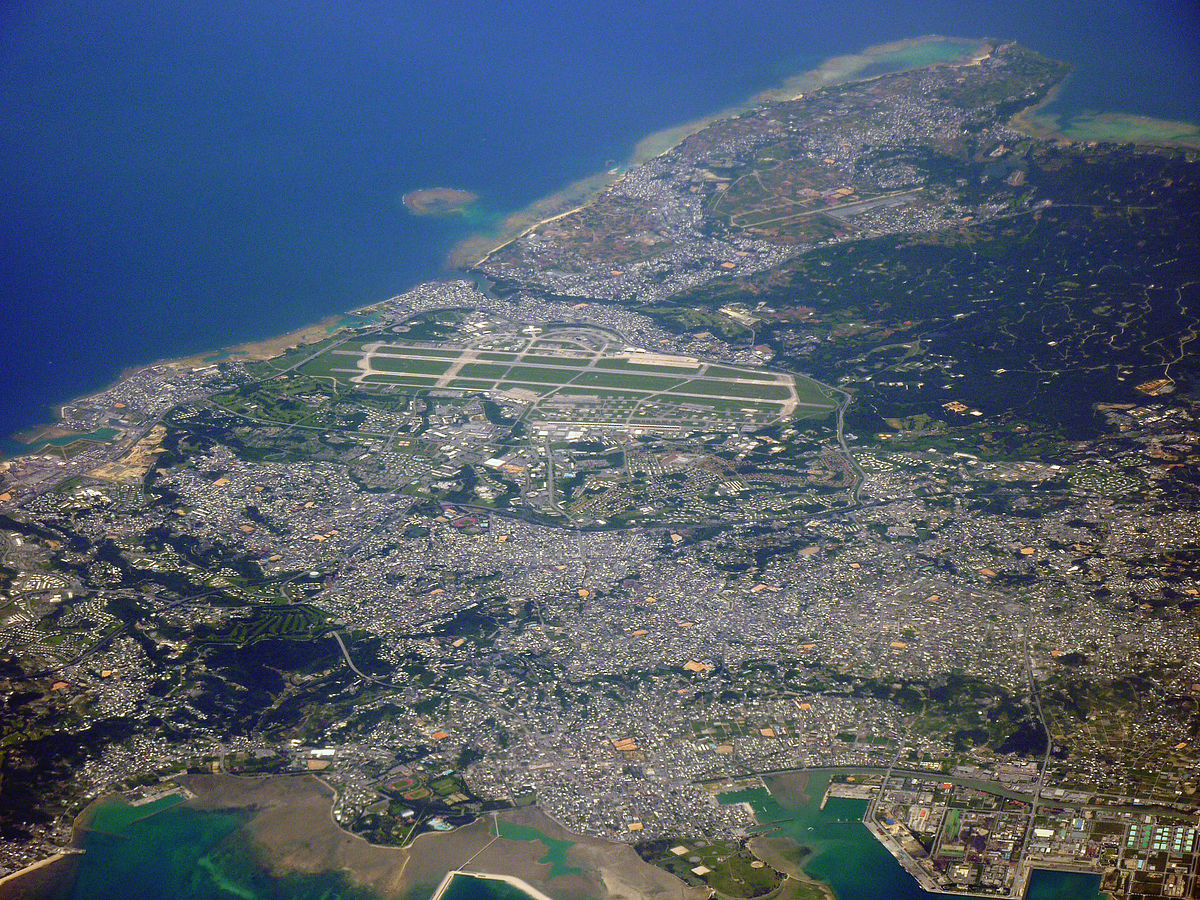Global Courant 2023-05-29 07:06:00
Okinawa is not nearly as much in the news as it was several years ago, when most coverage focused on vociferous protest groups demanding that US forces leave. The Japanese government sometimes even seemed to wish that the Americans would go away and return only when necessary.
Times have changed. Nowadays, the news is mainly on the Chinese threat. And Tokyo is probably happy that the Americans are still on Okinawa.
It never hurts to remember why US troops are there.
Map of Okinawa showing major cities and features including US military bases at Futenma and Henoko and the Senkaku Islands.
What is the strategic importance of Okinawa?
In military matters, geography is extremely important. Okinawa (using the name to refer to the whole Ryukyu Island Chain, and not just the main island of Okinawa, for convenience) is an important strategic geography because of its location. Okinawa is located between mainland southern Japan, Taiwan And China. And it’s also close to the Korean Peninsula.
Whoever occupies Okinawa has an advantage. For US forces, Okinawa bases enable a “forward presence” that simplifies air, sea and ground operations in the region. And it is in this region that the current “rivalry between great powers” plays out most intensely. Some argue that a fight with China is likely to break out in this neighborhood.
Okinawan bases naturally facilitate offensive military operations. But they are also useful defensively, although the difference between offensive and defensive action is often a matter of interpretation.
The Chinese People’s Liberation Army must be careful if it moves in the East China Sea. And even a Chinese attack on Taiwan would be vulnerable to US and Japanese forces operating out of Okinawa. places anti-ship missile batteries and anti-aircraft systems on the islands of Okinawa would also close off large parts of the ocean to the Chinese navy and Air Force, and could do the same for parts of Taiwan.
Okinawa is also a convenient platform for supervision And intelligence collection activities that are an indispensable part of military operations.
Looking further afield, the Okinawan bases also allow Americans to more easily operate throughout the Western Pacific and beyond. The US Navy-led response to the 2015 Earthquake in Nepal in fact it was launched from Okinawa. Okinawan bases are also available in case of a disaster on the Korean Peninsula.
China is broadcasting ballistic missile firing to “practice areas” around Taiwan and in Japan’s EEZ in Okinawa Prefecture. August 4, 2022. Photo: Weibo.
China knows the answer
China is well aware of the importance to Japan’s defense of Okinawa – and forward bases in particular. And it would like to see the American (and Japanese) troops gone.
Recall how China built artificial islands and established military bases in the South Chinese Ocean. This expands the operational capabilities of the People’s Liberation Army. This allows the PLA to dominate or control the sea and airspace much further from mainland China than it would without the islands. Okinawa offers similar benefits to whoever owns its islands.
And don’t forget the political significance of it Japan defends its territory in return for Chinese aggression. China has declared its intention to eventually “reconquer” Okinawa (the Ryukyus) and not just the Senkaku Islands.
Tokyo shows political will. The cooperation between the Japanese and the Americans in the mutual defense of Japanese territory and in repelling Chinese expansion is a clear sign of the political resolve of the world’s two largest democracies.
How can US troops be deployed to Okinawa in the event of a conflict with China, e.g. Taiwan?
Potentially, those islands would be used as launching points for air and naval strikes against Chinese forces, but the Marines and military would use them in the use of long-range precision weapons, air and missile defense systems. This would help prevent Chinese troops from operating in the area. The United States Air Force and, to a lesser extent, naval forces operating out of Okinawa are also part of the defensive web.
Remember that Okinawa is just as important to Japan and the Japanese armed forces as it is to the US armed forces. And for the same reasons. But the Americans are the ones who are really capable of operating further afield against the PLA.
Okinawa-based forces could also be deployed to support the US presence in the United States Philippinesamong others in the region, as supporting elements in a fight in Taiwan.
US military exercises were underway at US Marine Corps Air Station Futenma on Okinawa in 2017. Photo: The Sankei Shimbun
Are Okinawan bases losing relevance in the new era of modern warfare?
Weapons and hardware change, but the war itself hasn’t changed all that much. Keep in mind the Ukraine war. It’s a lot like old-fashioned war in many ways.
But aren’t the bases shelters for missile strikes?
Kind of. But a little bit not. In fact, any base, anywhere, is vulnerable to Chinese missile strikes Guam, Pearl Harbor, San Diego and maybe even Camp LeJeune, North Carolina. The same, of course, applies to Chinese military bases.
So it’s important to harden your bases as much as possible ー both physically, for example with concrete aircraft shelters, and also with the right missile defense and other defensive measures. But you also want to be able to hammer the enemy hard enough so that they know they will receive as much or more than they provide.
What is the alternative? Retreat to Colorado and dive into the Rocky Mountains?
Japanese Self-Defense Force base under development on Yonaguni Island, Okinawa Prefecture. Photo: The Sankei Shimbun
Also keep in mind the distinction between military operations before a war begins and military operations after the war. In peacetime, an army does all kinds of things to train, practice, prepare and establish its position. And also things like humanitarian aid/disasters relief activities.
If you show that you are a serious soldier, able to fight ー and positioned in a number of different places ー and with many “allies” or “partners”, an enemy is less likely to try his luck with you. And he may also worry about going up against all the might (military, economic, political) of the US and his friends.
All this adds up deterrence ー which, when done right, prevents war from starting in the first place.
Once the shooting starts, everything is different. And then you know if you did what was necessary in peacetime.
Should the US rethink its deployment in the Pacific to better contain China?
Yes, and it does. Large bases like on Okinawa are important and useful. But an army should not put all its eggs in one basket, as the US has done. The Americans have too few major bases in Asia outside of Japan.
The Americans would have to operate from many different locations in Asia.
Opportunities have recently opened up in the Philippines and a few other places like Palau And Papua New Guinea. Also facilities in North Australia are finally being used to their potential.
But the top leadership of the US military wasted 20 years. And it didn’t do what it took to gain entry and position itself in as many places in the region as possible. The brass even declined invitations from a number of countries to settle.
To his credit, the US military is now trying to disperse. But it’s late in the day.
Grant Newsham is a retired United States Marine Corps officer and former United States diplomat. He is the author of the book When China Attacks: A Warning for America. This article was first published by JAPAN Go ahead and is republished with permission.
Similar:
Loading…








